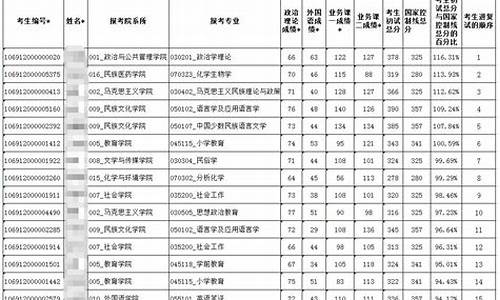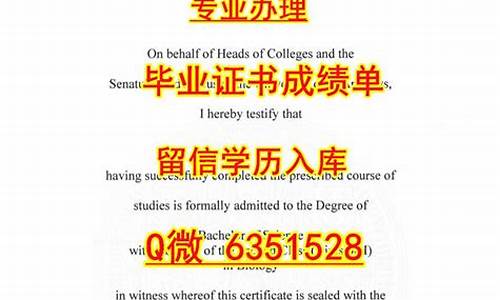您现在的位置是: 首页 > 招生信息 招生信息
高考动词语法,高考英语动词用法
tamoadmin 2024-05-18 人已围观
简介1.高考英语语法辅导:非谓语动词做定语 动词的语态是动词的一种形式,表示主语和谓语之间语法或语义的关系,许多同学都掌握得不好。让我们一起学习吧!以下我为大家编辑的动词的语态英语基础语法知识点汇总,欢迎大家阅读! 1 动词的语态 语态有两种:主动语态和被动语态。 主语是动作的发出者为主动语态;主语是动作的接受者为被动语态。 1)若宾语补足语是不带to 的不定式,变为被动语态 时,该不定式
1.高考英语语法辅导:非谓语动词做定语

动词的语态是动词的一种形式,表示主语和谓语之间语法或语义的关系,许多同学都掌握得不好。让我们一起学习吧!以下我为大家编辑的动词的语态英语基础语法知识点汇总,欢迎大家阅读!
1 动词的语态
语态有两种:主动语态和被动语态。
主语是动作的发出者为主动语态;主语是动作的接受者为被动语态。
1)若宾语补足语是不带to 的不定式,变为被动语态 时,该不定式前要加"to"。此类动词为感官动词。
feel, hear, help, listen to, look at, make, observe, see, notice, watch
The teacher made me go out of the classroom.
--> I was made to go out of the classroom (by the teacher).
We saw him play football on the playground.
--> He was seen to play football on the playground.
2)情态动词+ be +过去分词,构成被动语态。
Coal can be used to produce electricity for agriculture and industry.
琴声悠悠550字1 let 的用法
1)当let后只有一个单音节动词,变被动语态时,可用不带to 的不定式。
They let the strange go.---> The strange was let go.
2) 若let 后宾补较长时,let 通常不用被动语态,而用allow或permit 代替。
The nurse let me go to see my classmate in the hospital.
----> I was allowed / permitted to see my classmate in the hospital.
2 短语 动词的被动语态
短语动词是一个整体,不可丢掉后面的介词或副词。
This is a photo of the power station that has been set up in my hometown.
My sister will be taken care of by Grandma.
Such a thing has never been heard of before..
3 表示"据说"或"相信" 的词组
believe, consider, declare, expect, feel , report, say, see, suppose, think, understand
It is said that… 据说
It is reported that… 据报道
It is believed that… 大家相信
It is hoped that… 大家希望
It is well known that… 众所周知
It is thought that… 大家认为
It is suggested that… 据建议
It is taken granted that… 被视为当然
It has been decided that… 大家决定
It must be remember that…务必记住的是
It is said that she will leave for Wuhan on Tuesday.
4不用被动语态的情况
1) 不及物动词或动词短语无被动语态:
appear, die disappear, end (vi. 结束), fail, happen, last, lie, remain, sit, spread, stand
break out, come true, fall asleep, keep silence, lose heart, take place.
After the fire, very little remained of my house.
比较: rise, fall, happen是不及物动词;raise, seat是及物动词。
(错) The price has been risen.
(对) The price has risen.
(错) The accident was happened last week.
(对) The accident happened last week.
(错) The price has raised.
(对) The price has been raised.
(错) Please seat.
(对) Please be seated.
要想正确地使用被动语态,就须注意哪些动词是及物的,哪些是不及物的。特别是一词多义的动词往往有两种用法。解决这一问题唯有在学习过程中多留意积累。
2) 不能用于被动语态的及物动词或动词短语:
fit, have, hold, marry, own, wish, cost, notice, watch agree with, arrive at / in, shake hands with, succeed in, suffer from, happen to, take part in, walk into, belong to
This key just fits the lock.
Your story agrees with what had already been heard.
3) 系动词无被动语态:
appear, be become, fall, feel, get, grow, keep, look, remain, seem, smell, sound, stay, taste, turn
It sounds good.
4) 带同源宾语的及物动词,反身代词,相互代词,不能用于被动语态:
die, death, dream, live, life
She dreamed a bad dream last night.
5) 当宾语是不定式时,很少用于被动语态。
(对) She likes to swim.
(错) To swim is liked by her.
5 主动形式表示被动意义
1)wash, clean, cook, iron, look, cut, sell, read, wear, feel, draw, write, sell, drive…
The book sells well. 这本书销路好。
This knife cuts easily. 这刀子很好用。
2)blame, let(出租), remain, keep, rent, build
I was to blame for the accident.
Much work remains.
3) 在need, require, want, worth (形容词), deserve后的动名词必须用主动形式。
The door needs repairing.= The door needs to be repaired.
This room needs cleaning. 这房间应该打扫一下。
This book is worth reading. 这本书值得一读。
4) 特殊结构:make sb. heard / understood (使别人能听见/理解自己),have sth. done ( 要某人做某事)。
6 被动形式表示主动意义
be determined, be pleased, be graduated (from), be finished, be prepared (for), be occupied (in), get marries
He is graduated from a famous university.
他 毕业 于一所有名的大学。
注意: 表示同某人结婚,用marry sb. 或get married to sb. 都可。
He married a rich girl.
He got married to a rich girl.
7 need/want/require/worth
注意:当 need, want, require, worth(形容词)后面接doing也可以表示被动。
Your hair wants cutting. 你的头发该理了。
The floor requires washing. 地板需要冲洗。
The book is worth reading. 这本书值得一读。
典型例题
The library needs___, but it'll have to wait until Sunday.
A. cleaning B. be cleaned C. clean D. being cleaned
答案A. need (实意) +n /to do,need (情态)+ do,当为被动语态时,还可need + doing. 本题考最后一种用法,选A。如有to be clean 则也为正确答案。
典:done,"不可能已经"。must not do 不可以(用于一般现在时)。
动词的语态英语基础语法知识点汇总相关 文章 :
1. 高考英语动词的时态和语态语法知识点与技巧方法
2. 英语语法:动词的时态和语态
3. 英语基础语法知识点汇总:动词的语态
4. 动词的语态语法讲解及练习题
5. 动词英语基础语法
6. 初中常考的英语语法知识点汇总
7. 英语动词的语法归纳
8. 最新九年级英语语法知识点总结大全
9. 九年级英语语法知识点整理归纳
10. 英语被动语态知识点总结讲解
高考英语语法辅导:非谓语动词做定语
英语中按动词后可否直接跟宾语,可把动词分成及物动词和不及物动词。
不及物动词:字典里词后标有vi. 的就是不及物动词。不及物动词后不能直接跟有动作的对象(即宾语)。若要跟宾语,必须先在其后添加上某个介词,如to,of ,at后方可跟上宾语。具体每个动词后究竟加什么介词就得联系动词短语了.
常用的不及物动词
appear ,Appear calm
come ,Come easy (safe)
go ,Go mad (crazy, bad, sour, wrong, crazy, hungry, blind)
get ,Get angry (ill, wet, excited, married, paid)
fall ,Fall asleep( fall ill, fall short, fall flat)
feel ,Feel good (sleepy)
keep ,Keep quiet (silent)
look ,Look fit (well, young, tired)
make, Make certain (sure, ready, a good teacher)
prove ,Prove an effective method (correct, accurate)
remain ,Remain still (unchanged)
rest,Rest satisfied (content)
rise, Rise red
seem ,Seem happy
stand ,Stand still
stay ,Stay young (stay fresh, the same)
turn, Turn teacher =become a teacher (yellow)
turn out ,Turn out true
用法举例
Look carefully! (注意:carefully 是副词,不是名词,故不作宾语)
look at 看…….+宾语 Look at me carefully! (me是代词,作宾语)
(at是小范围 in是大范围)
如: The students work very hard.学生们很努力地学习。
She apologized to me again. 她再次向我道歉。
The accident happened yesterday evening.昨天晚上发生了事故。
与及物动词的区别
及物动词与不及物动词的区别从是否需要宾语来分,实义动词分为及物动词和不及物动词两类。
1)及物动词 后面必须跟宾语意义才完整的实义动词,叫做及物动词(transitive verb)。如: I believe that the committee will consider our suggestion.我相信委员会将会考虑我们的建议。
“How long can I keep the book ?”Harry asked.哈里问:“这本书我可以借多久?”
2)不及物动词 本身意义完整后面不须跟宾语的实义动词,叫做不及物动词(intransitive verb)。如: Birds fly.鸟会飞。
It happened in June 1932.这件事发生于一九三二年六月。
My watch stopped.我的表停了。
She spoke at the meeting yesterday evening. 她在昨天晚上的会上发了言。
3)兼作及物动词和不及物动词 英语里有不少实义动词可以兼作及物动词和不及物动词。这样的动词又有两种不同的情况:
a)兼作及物动词和不及物动词时,意义不变。试比较:
Shall I begin at once?我可以立刻开始吗?(begin作不及物动词)
She began working as a librarian after she left school.她毕业后当图书馆管理员。(begin作及物动词)
When did they leave Chicago?他们是什么时候离开芝加哥的?(leave 作及物动词)
They left last week. 他们是上周离开的。(left 作不及物动词)
b)兼作及物动词和不及物动词时,有时意义不尽相同。如:
Wash your hands before meals.饭前要洗手。
Does this cloth wash well? 这布经得起洗吗?
4) 与汉语的比较 有时英语动词的及物和不及物的用法,与汉语的用法不一样,请注意下列两种情况:
a)有的动词在英语里只能用作不及物动词,而汉语则可用作及物动词,如arrive到达,agree同意,1isten听。英语里这些动词后面常接介词。如:
We arrived at the railway station at noon.我们于中午到达火车站。(at不能省去)(比较:We reached the railway station at noon.)
Everybody listened to the lecture with great interest.每个人都很有兴趣地听讲课。(to不可省去)(比较:We all heard the lecture.)
Do they agree to the plan?他们同意这个计划吗?(to不可省去)
b)有的动词在英语里能用作及物动词,而在汉语里则不能用作及物动词,如serve为…服务。 Our children are taught to serve the people wholeheartedly.我们的儿童被教以全心全意为人民服务
及物动词后可以加宾语,不及物动词后不可以加宾语
动词的及物不及物是在英语学习中必须解决的首要问题。动词及物与不及物通常有以下几种情况:
a.主要用作及物动词。及物动词后面必须跟宾语。可以用于:"主+谓+宾";"主+谓+双宾";"主+谓+宾+宾补"结构。如:
He reached Paris the day before yesterday.
Please hand me the book over there.
They asked me to go fishing with them.
类似的还有:buy, catch, invent, found, like, observe, offer, prevent, promise, raise, find, forget, receive, regard, see, say, seat, supply, select, suppose, show, make, take, tell.... b.主要用作不及物的动词。不及物动词后面不跟宾语。只能用于:"主+谓"结构。
This is the room where I once lived.
类似的还有:agree, go, work, listen, look, come, die, belong, fall, exist, rise, arrive, sit, sail, hurry, fail, succeed....
c.既可以用作及物又可以用作不及物的动词,其意义不变。如begin 都是作"开始"讲。everybody , our game begins. let us begin our game.
类似的还有:start, answer, sing, close, consider, insist, read, learn, prepare, pay, hurt, improve....
d.既可以用作及物又可以用作不及物的动词,其意义完全不同。
这类动词作不及物动词是一个意义;而作及物动词时却是另一个意义。如lift作不及物动词时是指烟雾的"消散"。we saw the mountain when the clouds lifted. 作及物动词时是"升高;举起"。 He lifted his glass and drank.
类似的还有:beat vi.跳动 vt. 敲、打; grow vi.生长 vt. 种植 play vi.玩耍 vt. 打(牌、球),演奏 smell vi.发出(气味) vt. 嗅 ring vi.(电话、铃)响vt.打电话 speak vi.讲话 vt. 说(语言) hang vi. 悬挂 vt. 绞死 operate vi.动手术 vt. 操作
需要注意的一点是:少数不及物动词唯一可跟的宾语是同源宾语,如:I dreamed a dream last night.
南开中学 李士明
非谓语动词做定语
直接修饰名词的成分称为定语,一般由形容词或名词担当,也可以分别由不定式、分词或动名词等非谓语动词来担当。那么如何区别并正确使用非谓语动词呢?
NON-FINITES
1. 现在分词与过去分词的区别
我们知道非谓语动词都源于及物和不及物两种谓语动词,要了解现在分词与过去分词的区别就要从谓语动词的基本属性开始。
1)及物动词 (v.t.)
及物动词的主语我们称为动作的发出者(sender),宾语称为动作的承受者(receiver)。
例如:
The news surprised
动词+ing (发出者) 及物动词v.t.
the students.
动词+ed (承受者)
Surprise是及物动词, 在使用surprise这个动词的非谓语分词形式时,修饰动作发出者news用现在分词形式(动词+ing),修饰动作的承受者用过去分词形式(动词+ed)。
●They are talking about the surprising news. (surprising做定语修饰发出者news)
The news is surprising. (surprising做表语修饰发出者news)
They are talking about the surprised students. (surprised做定语修饰承受者students)
The students are surprised. (surprised做表语修饰承受者students)
再来看几个例子:
●exciting games激烈精彩的比赛, excited spectators激情振奋的观众
●disappointing results令人沮丧的结果, disappointed people大失所望的人们
●exhausting work令人疲惫不堪的工作, exhausted workers筋疲力尽的工人
●moving stories感人肺腑的故事, moved students感激涕零的学生
从以上例子可见,现在分词和过去分词都可以用作形容词来修饰名词,修饰动作发出者用现在分词,修饰动作承受者用过去分词。要特别注意的是,依据被修饰的名词是人还是物来判断现在分词和过去分词的用法是不准确的。
例如: They complicated the situation by introducing some more restriction.
他们采用了一些更多的限制把形势复杂化了。
及物动词complicate的发出者是人they, 而承受者是物。因此,“复杂恶化的形势”应译为the complicated situation,“形势是令人棘手的” 应译为The situation is complicated.
从这个例子可以清楚地看出,如果根据中文,很容易将“令人棘手的形势”错误地理解为 “complicating situation”。
再比如我们常用的:
a broken cup 一个破杯子; spoken English英语口语;exported products出口产品。
因此,准确了解所修饰的名词与及物动词的关系,是正确使用及物动词的现在分词和过去分词的关键。
2) 不及物动词(v.i.)
不及物动词只有动作的发出者,不存在动作的承受者。因此,不及物动词的现在分词源于进行时,表示动作正在进行,而过去分词则源于完成时,表示动作已完成。
例如:
●He looked at the leaves which are falling in the air.(从句用进行时修饰名词the leaves)
他看着空气中飘然下落的叶子。
=He looked at the leaves falling in the air.(现在分词短语修饰名词the leaves表示进行)
=He looked at the falling leaves in the air. (现在分词修饰名词the leaves表示进行)
●He walked on the leaves which had fallen on the ground.(从句用完成时修饰名词the leaves) 他走在地面的落叶上。
He walked on the leaves fallen on the ground.(过去分词短语修饰名词leaves表示过去)
He walked on the fallen leaves on the ground. (过去分词修饰名词leaves表示过去)
●the rising sun. = the sun that is rising. 冉冉升起的太阳
the risen sun = the sun that has risen. 已经升在天空的太阳
●boiling water = water which is boiling. 沸腾的水
boiled water = water which has boiled 开过的水
2. 不同形式不定式做定语的区别
动词不定式的一般式可以用做形容词,担当名词的定语, 表示将要发生的动作,不定式的进行式和完成式都不可以用作定语。
1)及物动词不定式一般式主动to do sth和被动to be done 两种形式的区别。
例如:
●Have you anything to send? = Have you anything that you will send?
你有什么东西要(自己)寄吗?(主动含义,动作由you自己去完成)
(to send做定语, 源于定语从句that you will send, 修饰先行词anything, 表示将来。)
●Have you anything to be sent (by others)?=Have you anything that will be sent(by others)?
你有什么东西要(我或别人)寄吗?(被动含义,动作由他人others去完成)
(to be sent做定语, 源于定语从句that will be sent, 修饰先行词anything, 表示将来。)
从以上两个例子可以看出,不定式的主动形式to send来源于主动语态的定语从句。
而不定式的被动形式to be sent来源于被动语态的定语从句, 不能错误地认为to send 是主动形式表示被动,准确地讲应该牢记主动形式的不定式源于主动语态的从句,被动形式的不定式则源于被动语态的从句,两者绝不可以混淆。
●I have some books for you to read. = I have some books that you should read.
我有几本书希望你读一读。
(for you to read做定语, 源于定语从句that you should read, 修饰先行词books, 表示将来。原从句的主语you在不定式的前面以for you 的形式出现,担当不定式的逻辑主语。)
2)不及物动词不定式一般式做定语
当不及物动词做定语时, 后面必须有相应的介词与前面所修饰的名词相呼应, 从汉语角度理解,而忽略了必要的介词是不及物动词做定语时常见的错误。
例如:
●He is looking for a room to live in.= He is looking for a room which he will live in.
他现在正在找房间住。
(to live in做定语, 源于定语从句which he will live in, 修饰先行词room, 表示将来。)
●Would you like to have another pen to write with? ( to write with the pen)
你需要再准备一支笔用吗?
●Smith is a good man to work with. ( to work with the man)
与史密斯一起工作是再好不过了。
●Lei Feng is a brilliant example for us to learn from. ( to learn from the example)
雷锋是我们学习的光辉榜样。
●Can you lend me a chair to sit on?
您可以借给我一把椅子坐吗?
●Global Financial Crisis is a hot topic to talk about today. ( to talk about the topic)
全球性金融危机是当前人们谈论的热点话题。









